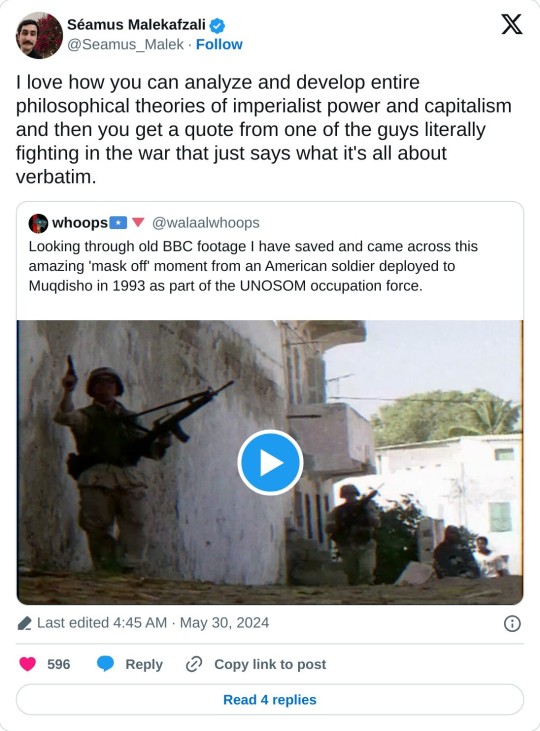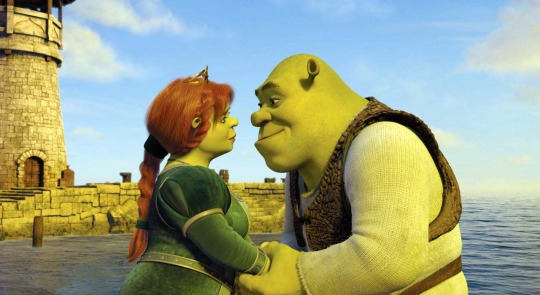#The Policy
Explore tagged Tumblr posts
Text





















THE POLiCY icons
#from 3rd beat op 1#yayyy i've been wanting to make this set for a while#idolish7#the boys....#riku nanase#mitsuki izumi#nagi rokuya#yamato nikaido#tamaki yotsuba#iori izumi#sogo osaka#:DDD#my photosets#THE POLiCY
42 notes
·
View notes
Text
THE POLiCY

I've never been able to post daily for anything before but it's crazy how well these two destroyed my artblock
55 notes
·
View notes
Text








Phytagoras trio owns my whole heart
#idolish7#yamato nikaido#mitsuki izumi#nagi rokuya#pythagoras#they are my life#I love them#and they love each other#they are a set do not separate#the policy#wonder light#yamamitsu#nagimitsu#nagiyama
322 notes
·
View notes
Text

#luigi mangione#😂☠️#***#context for my non-american followers: once you turn 26 you are no longer allowed to be on your parents' health insurance policy#****
24K notes
·
View notes
Text

source 1
source 2
source 3
#destiel meme news#destiel meme#news#united states#us news#us politics#president biden#joe biden#biden administration#immigration rights#immigration policy#immigration#immigrants#migrants#undocumented immigrants#undocumented migrants#woooooo#this is very cool
31K notes
·
View notes
Text
From instructions on how to opt out, look at the official staff post on the topic. It also gives more information on Tumblr's new policies. If you are opting out, remember to opt out each separate blog individually.
Please reblog this post, so it will get more votes!
#third party sharing#third-party sharing#scrapping#ai scrapping#Polls#tumblr#tumblr staff#poll#please reblog#art#everything else#features#opt out#policies#data privacy#privacy#please boost#staff
47K notes
·
View notes
Note
do you have any ideas about why so many students are struggling with literacy now? I know that illiteracy and reading comprehension have been issues for years and most americans read at like a 5th grade reading level but I’m curious why it seems to be worse now (pandemic? no child left behind?)
It is everything. There’s not one answer. I could talk about this forever so instead I set a five minute timer on my phone and wrote a list of as many of the many things that are causing this on a systemic level that I could think of:
It’s parents not reading with their kids (a privilege, but some parents have that privilege to be able to do this and don’t.)
It’s youtube from birth and never being bored.
It’s phasing out phonics for sight words (memorizing without understanding sounds or meaning) in elementary schools in the early aughts.
It’s defunding public libraries that do all the community and youth outreach.
It’s NCLB and mandating standardized tests which center reading short passages as opposed to longform texts so students don’t build up the endurance or comprehension skills.
It’s NCLB preventing schools from holding students back if they lack the literacy skills to move onto the next grade because they can’t be left behind so they’re passed on.
It’s the chronic underfunding of ESL and Special Ed programs for students who need extra literacy support.
It’s the cultural devaluing of the humanities in favor of stem and business because those make more money which leads to a lot of students to completely disregard reading and writing.
It’s the learning loss from covid.
It’s covid trauma manifesting in a lot of students as learned helplessness, or an inability to “figure things out” or push through adversity to complete challenging tasks independently, especially reading difficult texts.
It’s covid normalizing cheating and copying.
It’s increasing phone use.
It’s damage to attention span exacerbated by increased phone use that leaves you without an ability to sit and be bored ever without 2-3 forms of constant stimulation.
It’s shortform video becoming the predominant form of social media content as opposed to anything text-based.
It’s starting to also be generative AI.
It’s the book bans.
what did I miss.
#i’m not immune to any of this. I’m trying to read more. it’s good for me#I think that the literacy crisis is a manufactured result of a lot of different policy choices because it creates an exploitable underclass
14K notes
·
View notes
Text
While we're on the subject of swinging our fists at God
The ACLU is gonna take action against Mastercard for their anti-porn schtick! Y'know, one of the major reasons the internet turned to shit in the last ten years? It's literally like 95% of the way there, we just need a few more signatures and the petition Gets There. You have to be USAmerican to sign, but there's enough of us here to fill in the last few signatures needed several times over, so go on over and throw your name on there!!
#sex work is work#pride#Not exactly a Pride Tee Em post but this policy has wreaked havoc on our community so I think Doing Something About It is relevant enough
17K notes
·
View notes
Text
No paywall version here.
"Two and a half years ago, when I was asked to help write the most authoritative report on climate change in the United States, I hesitated...
In the end, I said yes, but reluctantly. Frankly, I was sick of admonishing people about how bad things could get. Scientists have raised the alarm over and over again, and still the temperature rises. Extreme events like heat waves, floods and droughts are becoming more severe and frequent, exactly as we predicted they would. We were proved right. It didn’t seem to matter.
Our report, which was released on Tuesday, contains more dire warnings. There are plenty of new reasons for despair. Thanks to recent scientific advances, we can now link climate change to specific extreme weather disasters, and we have a better understanding of how the feedback loops in the climate system can make warming even worse. We can also now more confidently forecast catastrophic outcomes if global emissions continue on their current trajectory.
But to me, the most surprising new finding in the Fifth National Climate Assessment is this: There has been genuine progress, too.
I’m used to mind-boggling numbers, and there are many of them in this report. Human beings have put about 1.6 trillion tons of carbon in the atmosphere since the Industrial Revolution — more than the weight of every living thing on Earth combined. But as we wrote the report, I learned other, even more mind-boggling numbers. In the last decade, the cost of wind energy has declined by 70 percent and solar has declined 90 percent. Renewables now make up 80 percent of new electricity generation capacity. Our country’s greenhouse gas emissions are falling, even as our G.D.P. and population grow.
In the report, we were tasked with projecting future climate change. We showed what the United States would look like if the world warms by 2 degrees Celsius. It wasn’t a pretty picture: more heat waves, more uncomfortably hot nights, more downpours, more droughts. If greenhouse emissions continue to rise, we could reach that point in the next couple of decades. If they fall a little, maybe we can stave it off until the middle of the century. But our findings also offered a glimmer of hope: If emissions fall dramatically, as the report suggested they could, we may never reach 2 degrees Celsius at all.
For the first time in my career, I felt something strange: optimism.
And that simple realization was enough to convince me that releasing yet another climate report was worthwhile.
Something has changed in the United States, and not just the climate. State, local and tribal governments all around the country have begun to take action. Some politicians now actually campaign on climate change, instead of ignoring or lying about it. Congress passed federal climate legislation — something I’d long regarded as impossible — in 2022 as we turned in the first draft.
[Note: She's talking about the Inflation Reduction Act and the Infrastructure Act, which despite the names were the two biggest climate packages passed in US history. And their passage in mid 2022 was a big turning point: that's when, for the first time in decades, a lot of scientists started looking at the numbers - esp the ones that would come from the IRA's funding - and said "Wait, holy shit, we have an actual chance."]
And while the report stresses the urgency of limiting warming to prevent terrible risks, it has a new message, too: We can do this. We now know how to make the dramatic emissions cuts we’d need to limit warming, and it’s very possible to do this in a way that’s sustainable, healthy and fair.
The conversation has moved on, and the role of scientists has changed. We’re not just warning of danger anymore. We’re showing the way to safety.
I was wrong about those previous reports: They did matter, after all. While climate scientists were warning the world of disaster, a small army of scientists, engineers, policymakers and others were getting to work. These first responders have helped move us toward our climate goals. Our warnings did their job.
To limit global warming, we need many more people to get on board... We need to reach those who haven’t yet been moved by our warnings. I’m not talking about the fossil fuel industry here; nor do I particularly care about winning over the small but noisy group of committed climate deniers. But I believe we can reach the many people whose eyes glaze over when they hear yet another dire warning or see another report like the one we just published.
The reason is that now, we have a better story to tell. The evidence is clear: Responding to climate change will not only create a better world for our children and grandchildren, but it will also make the world better for us right now.
Eliminating the sources of greenhouse gas emissions will make our air and water cleaner, our economy stronger and our quality of life better. It could save hundreds of thousands or even millions of lives across the country through air quality benefits alone. Using land more wisely can both limit climate change and protect biodiversity. Climate change most strongly affects communities that get a raw deal in our society: people with low incomes, people of color, children and the elderly. And climate action can be an opportunity to redress legacies of racism, neglect and injustice.
I could still tell you scary stories about a future ravaged by climate change, and they’d be true, at least on the trajectory we’re currently on. But it’s also true that we have a once-in-human-history chance not only to prevent the worst effects but also to make the world better right now. It would be a shame to squander this opportunity. So I don’t just want to talk about the problems anymore. I want to talk about the solutions. Consider this your last warning from me."
-via New York Times. Opinion essay by leading climate scientist Kate Marvel. November 18, 2023.
#WE CAN DO THIS#I SO TRULY BELIEVE THAT WE CAN DO THIS#WE CAN SAVE OURSELVES AND THE WORLD ALONG WITH US#climate crisis#united states#climate change#conservation#hope posting#sustainability#climate news#climate action#climate emergency#fossil fuels#global warming#environmentalism#climate hope#solarpunk#climate optimism#climate policy#earth#science#climate science#meteorology#extreme weather#renewable energy#solar power#wind power#renewables#carbon emissions#climate justice
33K notes
·
View notes
Text

#this was me with my team policy debate ughhh#death penalty research begone#<3 yay#lmao#haha#funny#help#what the fuck#real#relatable#meme#whisper#funny meme
5K notes
·
View notes
Text

“There's already American contractors here, bidding to rebuild this joint. You're gonna tell me. You know, that's all the defense department is. We're bodyguards for American contractors. [...] The U.N.? They don't... We own the U.N. The U.S government owns the U.N. We foot the bill for the U.N. The U.N. does what we want it to. Except for who? Libya and Cuba. So what. We wanted to go in there in a week, we'd take those over if we wanted to anyways. But we foot the bill for the U.N, they'll vote how we want them to vote. That's just our, that's, that's the U.S puppet. You guys should know that you're, you've been in college, I haven't!”
10K notes
·
View notes
Text
No fucking WAYYYYYY YOUTUBE CHANGED THEIR TOS TO AVOID PUNISHING SSSNIPERWOLF FOR DOXXING
#NO WAY THIS IS CRAZY#CHANGED THEIR LITERAL POLICIES TO FIT AROUND THE SITUATION#WHATTTTTTTTTTTTTTTTTTTTTTTTTTTTTTTTTTTT#sergle.txt
38K notes
·
View notes
Text
As a leftist Jew who believes strongly in the cause of dignity and freedom for the Palestinian people, and that Israel has abused them, I am begging fellow leftists to understand that real life is not a comic book. A government being “the bad guy” in a situation does not automatically make anyone who opposes it “the good guy”.
Hamas denies the Holocaust. Hamas disseminates the Protocols of the Elders of Zion—the conspiracy theory it paints is what they mean by “Zionist”. Hamas forbids foreign aid educators from teaching human rights to Palestinians, and claims that even teaching that the Holocaust happened is a war crime. Hamas has written the aim of annihilating Israel (the country and its people) into its charter—the mass slaughter and violent expulsion of 7 million Jews from the land is written into its laws.
There is no crime any state could ever do that would justify any of that; there is no act of state repression that could ever make it acceptable to side with the organization spreading Nazi pamphlets and Holocaust denial.
Oppose Bibi Netanyahu. Oppose Israel’s far-right, authoritarian government. Oppose Likud’s policies. Oppose its violence against Palestinian civilians. That isn’t antisemitic. But Hamas is—verifiably, beyond a shadow of a doubt, to its core—antisemitic. Its portrayal of Israeli Jews as blood-thirsty, child-killing master manipulators that control international media and finance is antisemitic. Its insistence that Palestinian freedom necessitates the death & expulsion of Jews from the land is antisemitic. Its redefinition of “Zionism” as a pejorative to mean genocidal Jewish/Israeli Supremacy is antisemitic.
Supporting the Palestinian people in their plight is a noble and loving goal; please never stop that. But do not let Hamas co-opt that into excusing or denying their rampant antisemitism and war crimes.
#I am terrified every time the Israel-Palestine conflict makes the news here#bc I inevitably see American leftists regurgitate Hamas propaganda with zero critical thought#and that unfortunately includes Jewish Anti-Zionists#Israel#Palestine#israel palestine conflict#jumblr#antisemitism#edit: I removed reference to Israel’s policies as ‘apartheid’ which I’ve increasingly come to see as an inaccurate & unhelpful comparison
23K notes
·
View notes
Text


#mf ship bracket#mf ship bracket 2023#round 1#shrek#shrek x fiona#shrek fiona#kylo ren#rey#reylo#star wars#i have a no kissing img policy and the other intimate pic i could find was ? rey being dead 😭#ME SITTING THERE LIKE WHAT DO I DO….?#anyway. ngl this was the funniest one simply cuz i was doing the matchup system and realizing these two would be pit against each other.#sent a genuine shockwave thru my body ngl.#good luck everyone .
77K notes
·
View notes
Text
another thing fantasy writers should keep track of is how much of their worldbuilding is aesthetic-based. it's not unlike the sci-fi hardness scale, which measures how closely a story holds to known, real principles of science. The Martian is extremely hard sci-fi, with nearly every detail being grounded in realistic fact as we know it; Star Trek is extremely soft sci-fi, with a vaguely plausible "space travel and no resource scarcity" premise used as a foundation for the wildest ideas the writers' room could come up with. and much as Star Trek fuckin rules, there's nothing wrong with aesthetic-based fantasy worldbuilding!
(sidenote we're not calling this 'soft fantasy' bc there's already a hard/soft divide in fantasy: hard magic follows consistent rules, like "earthbenders can always and only bend earth", and soft magic follows vague rules that often just ~feel right~, like the Force. this frankly kinda maps, but I'm not talking about just the magic, I'm talking about the worldbuilding as a whole.
actually for the purposes of this post we're calling it grounded vs airy fantasy, bc that's succinct and sounds cool.)
a great example of grounded fantasy is Dungeon Meshi: the dungeon ecosystem is meticulously thought out, the plot is driven by the very realistic need to eat well while adventuring, the story touches on both social and psychological effects of the whole 'no one dies forever down here' situation, the list goes on. the worldbuilding wants to be engaged with on a mechanical level and it rewards that engagement.
deliberately airy fantasy is less common, because in a funny way it's much harder to do. people tend to like explanations. it takes skill to pull off "the world is this way because I said so." Narnia manages: these kids fall into a magic world through the back of a wardrobe, befriend talking beavers who drink tea, get weapons from Santa Claus, dance with Bacchus and his maenads, and sail to the edge of the world, without ever breaking suspension of disbelief. it works because every new thing that happens fits the vibes. it's all just vibes! engaging with the worldbuilding on a mechanical level wouldn't just be futile, it'd be missing the point entirely.
the reason I started off calling this aesthetic-based is that an airy story will usually lean hard on an existing aesthetic, ideally one that's widely known by the target audience. Lewis was drawing on fables, fairy tales, myths, children's stories, and the vague idea of ~medieval europe~ that is to this day our most generic fantasy setting. when a prince falls in love with a fallen star, when there are giants who welcome lost children warmly and fatten them up for the feast, it all fits because these are things we'd expect to find in this story. none of this jars against what we've already seen.
and the point of it is to be wondrous and whimsical, to set the tone for the story Lewis wants to tell. and it does a great job! the airy worldbuilding serves the purposes of the story, and it's no less elegant than Ryōko Kui's elaborately grounded dungeon. neither kind of worldbuilding is better than the other.
however.
you do have to know which one you're doing.
the whole reason I'm writing this is that I saw yet another long, entertaining post dragging GRRM for absolute filth. asoiaf is a fun one because on some axes it's pretty grounded (political fuck-around-and-find-out, rumors spread farther than fact, fastest way to lose a war is to let your people starve, etc), but on others it's entirely airy (some people have magic Just Cause, the various peoples are each based on an aesthetic/stereotype/cliché with no real thought to how they influence each other as neighbors, the super-long seasons have no effect on ecology, etc).
and again! none of this is actually bad! (well ok some of those stereotypes are quite bigoted. but other than that this isn't bad.) there's nothing wrong with the season thing being there to highlight how the nobles are focused on short-sighted wars for power instead of storing up resources for the extremely dangerous and inevitable winter, that's a nice allegory, and the looming threat of many harsh years set the narrative tone. and you can always mix and match airy and grounded worldbuilding – everyone does it, frankly it's a necessity, because sooner or later the answer to every worldbuilding question is "because the author wanted it to be that way." the only completely grounded writing is nonfiction.
the problem is when you pretend that your entirely airy worldbuilding is actually super duper grounded. like, for instance, claiming that your vibes-based depiction of Medieval Europe (Gritty Edition) is completely historical, and then never even showing anyone spinning. or sniffing dismissively at Tolkien for not detailing Aragorn's tax policy, and then never addressing how a pre-industrial grain-based agricultural society is going years without harvesting any crops. (stored grain goes bad! you can't even mouse-proof your silos, how are you going to deal with mold?) and the list goes on.
the man went up on national television and invited us to engage with his worldbuilding mechanically, and then if you actually do that, it shatters like spun sugar under the pressure. doesn't he realize that's not the part of the story that's load-bearing! he should've directed our focus to the political machinations and extensive trope deconstruction, not the handwavey bit.
point is, as a fantasy writer there will always be some amount of your worldbuilding that boils down to 'because I said so,' and there's nothing wrong with that. nor is there anything wrong with making that your whole thing – airy worldbuilding can be beautiful and inspiring. but you have to be aware of what you're doing, because if you ask your readers to engage with the worldbuilding in gritty mechanical detail, you had better have some actual mechanics to show them.
#finx rambles#worldbuilding#for writers#honestly I quite liked the asoiaf books I read#it's a well-constructed story! it's a well-constructed world too on its own merits#none of this stuff about grain and spinning is actually important to the story#the problem is that grrm himself seems to just. not realize this#and goes about blithely insisting he's created an extraordinarily realistic fantasy world where all the tax policies make sense#he has not!#he has invited people to tear his creation apart if they can and! it turns out! they absolutely can!#this shit's got no tensile strength! it's made of glue and popsicle sticks!#you're not supposed to put weight on it
5K notes
·
View notes